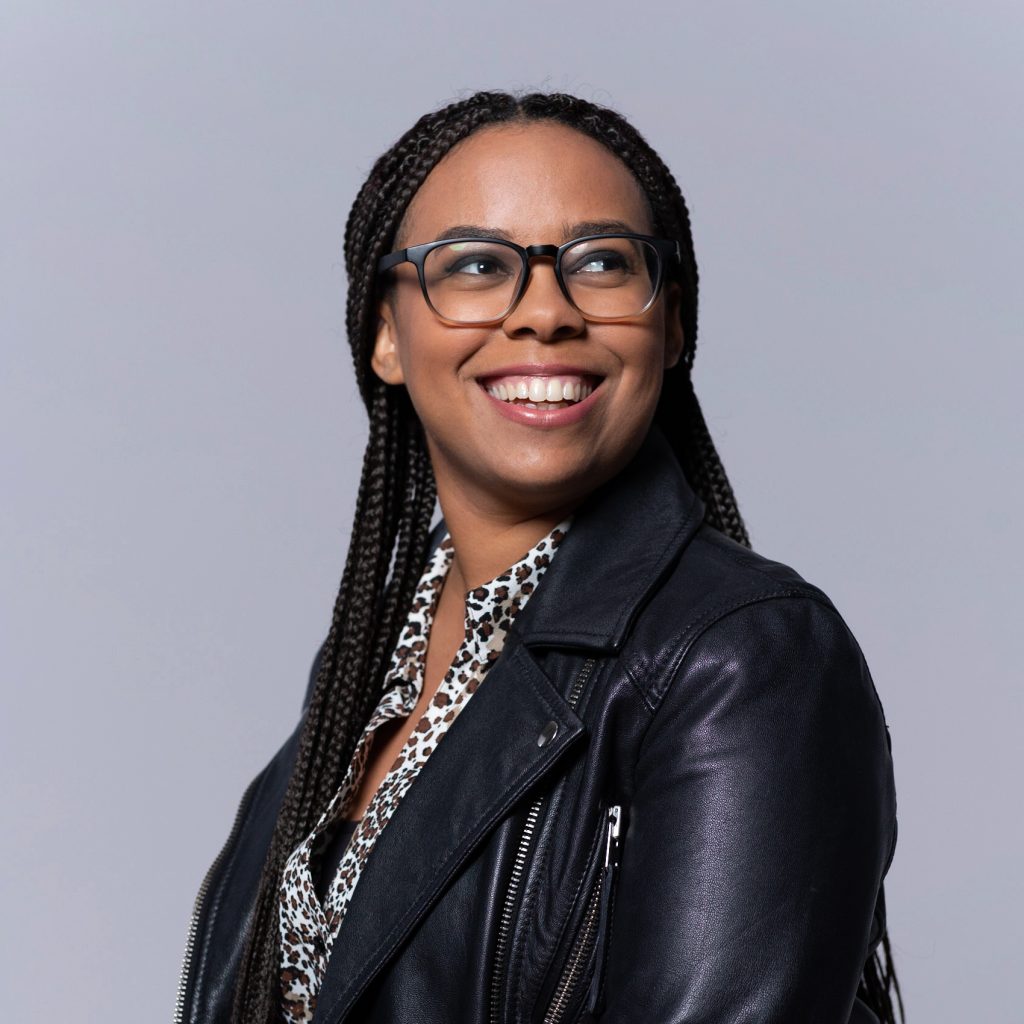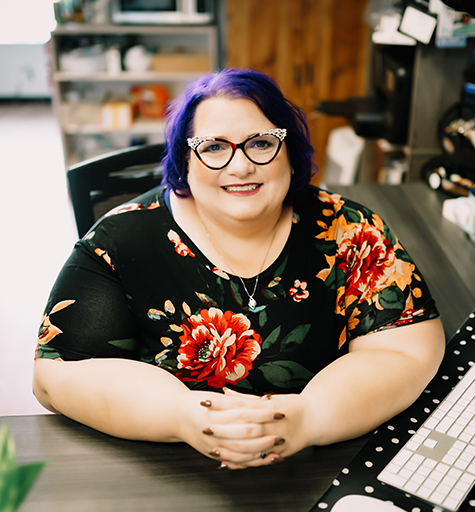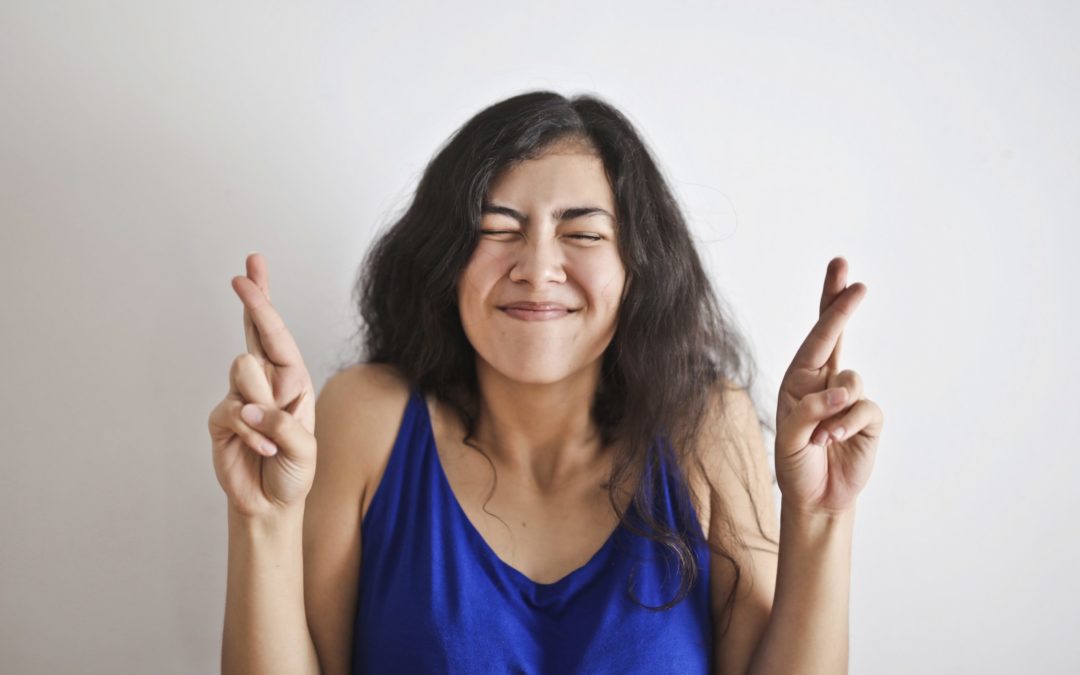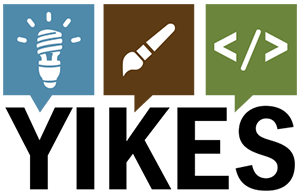Show Notes
In this episode, Allie and Michelle discuss why you shouldn’t claim that people are lucky to have all teh things they work so hard to achieve!
Episode Transcript
Speaker 1:
Welcome to the Underrepresented in Tech podcast, hosted by Michelle Frechette and Allie Nimmons. Underrepresented in Tech is a free database, built with the goal of helping people find new opportunities in WordPress and tech overall.
Michelle:
It’s been a few weeks, but I finally get to say, hi Allie.
Allie:
Hi, Michelle. How are you?
Michelle:
I am almost recovered from Word Camp Asia. How are you?
Allie:
I’m good. I think I’m pretty much entirely recovered by now. Took a little while, but yeah, I finally feel like I’m back to normal, which is good because it’s been like two or three weeks at this point.
Michelle:
The night before last was the first night that I got to bed at a right time and woke up at a right time.
Allie:
Nice.
Michelle:
It took so long, but I’ve also, I didn’t get COVID, I want to make that very clear, but I did at some point in the tail end of my travels or the beginning of being home, I don’t know which, contracted some kind of a respiratory infection. And for somebody with asthma and other, I hate this word, comorbidities. I’m somebody who is immunosuppressed or whatever the right word is. Immunocompromised.
Allie:
Immunocompromised, yeah.
Michelle:
Immunocompromised. So yeah, so I did pick up some kind of respiratory infection, and that has been the bane of my existence for almost two weeks. But I’m climbing out of it and starting to feel better, so yes. Very well.
Allie:
Good. Nice. Yeah, I’m super glad. It doesn’t sound like a ton of people. I heard one person, I don’t know who they were, but I heard that one person did report getting COVID following Word Camp Asia, but I haven’t heard any other reports, which is really fantastic. Since it involved international travel.
Michelle:
I’ve heard a lot of people though, with the Word Camp crud that we’ve always talked about prior to the pandemic.
Allie:
Yeah, that’s normal.
Michelle:
Just referred to, and I think that’s basically what I got was some kind of Word Camp crud, and [inaudible 00:01:58]
Allie:
It was my husband husband’s first Word Camp, and he got a cold pretty much as soon as we got home, he had a cold. So yeah, that happens. But I’m glad that it wasn’t COVID for sure.
Michelle:
And I love that we got to go see each other in New York City back in December and now in Bangkok, Thailand in February. So, I mean, I don’t know where our travels are taking us next, but I’ll hug you wherever I can find you.
Allie:
Yay.
Michelle:
But this brings me to the topic that I shared with you today. So I have had people say to me, people within and without, and outside of the WordPress community, how lucky I was to go to Word Camp Asia, and I take umbrage to when people tell me how lucky I am to get to do the things that I do now. I want to acknowledge the white privilege that I carry with me. Absolutely. So I am in a privileged, I’m less privileged than white men for sure, especially cisgendered, younger, able-bodied, white men, let’s put it that way. But I do have somewhat privilege and I acknowledge that. And so let’s just get that out of the way to begin with. However, that doesn’t mean that I am lucky to have been able to do the things I did because I was not in a lottery that everybody bought a ticket for, and they pulled my name to go to Word Camp Asia. I was not just sitting around and somebody walking up to me on the street and said, “Hey, I’ve got this plane ticket to Bangkok. Would you like it?” I mean that. Those are things that carry with them luck.
I have worked my ass off for years in this community to build the reputation that I have, the body of knowledge that I have, and the willingness to share it with people, to put me in the situations where I am able to do a lot of the things I do. Am I lucky to have a podcast with you? I am 100% fortunate that you and I have are the friends that are able to build this empire together. If it’s an empire? I like, it’s a small empire Empire [inaudible 00:03:57]. But is it luck? No. You and I did not get lucky to have a podcast. We created a podcast, we created something with traction. We created something for the community that benefits the community. That’s why I see myself, I have built who I am today in our community to benefit others in the community. Yes, I draw a paycheck. Yes, I do wonderful things, but I have worked my tail feathers off to get where I am. It was not luck.
Allie:
I think there’s a really interesting difference in the connotation between being lucky and being fortunate, right? being lucky implies that there was, yeah, like you said, random chance. You just happened for no other external impetus to have been selected to get something. Right. And occasionally through your life, through your professional career, luck is on your side and things kind of fall into place, but that is so not integral to how you became successful. It is so not the thing that people should focus on because it’s not the driving factor. We’re definitely fortunate. I remember thinking at in Thailand how fortunate I was, how fortunate I felt right to be there because it felt, I was just grateful. I think that comes from a place of feeling grateful, and I’m grateful to be able to do what we do together. But yeah, there’s no luck about it. We work really hard to be able to do this, and other people support us through listening and tweeting about the show at all of those other, there’s so many other things that go into it that to look at someone and say, “Oh, well, they’re really lucky.” It’s disrespectful. It discounts all of that other stuff by-
Michelle:
And do you know gets told that?
Allie:
… just putting the focus on the wrong place.
Michelle:
Do you know who gets told they’re lucky more than other people? Are women and minorities. We are lucky to be where we are. You are lucky that somebody took pity on you and hired you. You are lucky that you were selected for the college you wanted to go to, whatever it is, right? No, I worked hard in school to get the grades-
Allie:
It’s a bit of a micro-aggression.
Michelle:
… that I got, to go to the college. It’s a… Yeah, it’s maybe even more than micro, right? Maybe it’s like a medial aggression. I don’t know what the word is between micro and macroaggression, but it’s a medium aggression. It’s just infuriating and it just discounts the hours and hours and hours of work that we’ve done in the community, the amount of times we’ve put ourselves out there socially to network and build the networks that we have to be an integral part of the community, to be able to help others and do the work that we do. I am honored to do the work. I have immense gratitude to the people who have helped along the way, but not one single part of that was flipping a coin to find out how lucky I was.
Allie:
Yeah, that’s silly. And I mean, if you want another anecdote for people, if you’re listening and you’re still not getting it right. I remember being in high school, being a senior in high school, and all that’s on our minds are college. What colleges are we going to be applying to? Are we going to get accepted? How much work all that is going to be, and it’s a scary time, and we’re not sure what’s what the next step is going to be. And I remember one of my friends, and he doesn’t listen to this show, so we’re still very good friends, and I’m sure that he would be mortified to even remember that he said this because it’s totally not indicative who he is, whatever. Latin American person, but presented very white and he was concerned and he had a very white sounding name, and he was very concerned that that was going to affect him in a certain way. And I remember him telling me, “Oh, you’re so lucky that you’re black and that you’re a girl because colleges are going to want to accept you.” And I was like, “Well, damn. Thanks a lot.”
Michelle:
So am I lucky I use wheelchair services in the airport, so I get to lo board the plate first? Is that luck?
Allie:
Yeah, Michelle, you’re so lucky because you get to use the handicap parking spots in the parking parking lot.
But I just remember thinking, I worked really hard. I get really good grades, and I study hard and I test well, and I’m a really smart person. I’m going to get into college because I’m smart, not because I’m a black woman. I did understand objectively that when I was applying for colleges, I mean, affirmative action had long since been a thing, but it was even more so colleges were looking to diversify. And so I did know that that was to a degree, a factor, hearing that the way he said it, “You’re so lucky that all the colleges are going to want you because you’re black and female.” And I was like, that hurts my… Luck has nothing to do with it. It was so upsetting and frustrating. That was really the first time that I had experienced that as a person. And yeah, it really, really, sucks.
Michelle:
I’ve come to the conclusion and I literally just this moment came to the conclusion that the people who tell us are that we’re lucky are the people who aren’t willing to do the work to get to where we are, 100%.
Allie:
And it was very bizarre. It’s funny you say that. It was very bizarre to hear that from him. He was the valedictorian of our class. He was objectively the smartest kid in our class. He made the best grades. So especially to hear him say that, I was like, where is this coming from?
Michelle:
And by the way, dude, all you have to do is check the box that says you’re Hispanic on the college application. They’re not going to go look at your face and go, yeah, we don’t think so.
Allie:
Yeah because he-
Michelle:
That’s not how that works.
Allie:
… has blue eyes or whatever.
Michelle:
I spent years working in higher education. That is not how it works.
Allie:
And he got into two, actually three because he now has a doctorate, three very great colleges, and I’m convinced it had nothing to do with the fact that he was Hispanic or anything like that. He was a smart individual. So I wish at the time I had been able to retort back and say, “Well, it’s lucky that you get to put Hispanic on your thing. What are you talking? You sound stupid.” But I think at the time I was shocked. Well, the other things, when you-
Michelle:
I- Oh, go ahead. No, you finish your story first.
Allie:
Well, no, I was going to pivot to something else, so you go ahead.
Michelle:
Okay. Well, I was thinking more about that, and I actually texted you this morning too, because I started thinking about it. I was getting on my soapbox. I was getting out the ladder, and I was like, if you’re going to tell me about all the good luck I’ve had to get to where I am, are you also going to acknowledge all the bad luck I had to overcome to get here? I did the work. I did the work. Right. And I know you have your anecdote, and then we’ll talk about the other thing you and I talked about.
Allie:
So when you brought up this topic, because people know, we usually decide on the topic a little bit beforehand, and we might talk about it a little bit. What it also brought to my mind is, and I’ve, I’ve not experienced this just because I haven’t been in a position for people to treat me this way, but I’ve heard tons of anecdotal stories from people who maybe have some sort of a disability, either a physical disability or a learning disability or something, and for people to tell them like, “Oh, you’re so brave. You’re so brave to do brave the things that you do in the position that you’re in.” Or whatever. And it’s just another one of those things where it’s like, I get that you’re trying to be nice. I get that the core of what you’re doing is you’re trying to express a positive thought, and that deserves a bit of credit in and of itself, but you’re doing it in one of the most harmful, passive-aggressive, insulting ways possible, to where it negates all of the positive that you’re trying to do. Right?
What does that even mean for somebody, Michelle, to come up to you while you’re in your scooter and be like, “It’s so brave that you’re at this event and you’re moving around and everything while you have to like, gosh, Michelle, you’re so brave.” Brave for what? Brave for being alive. Brave for taking up space in the world? That is not brave. Now, I think that you are brave for lots of other different reasons. I see your bravery all the time in the way that you approach life and just things that I know about you personally that you’ve been through. I do think you’re a brave person, but I would never think to frame your bravery around the physical [inaudible 00:12:41]
Michelle:
A mobility device?
Allie:
Yeah. It’s so weird and bizarre and frustrating to me because it’s like, what’s the alternative? You’re just going to lay down and die? Right? I’ve heard this too about-
Michelle:
I’m so lucky I didn’t.
Allie:
Yeah. The last time I think I’ve heard this is it was a, somebody on Twitter who had a child with a disability, like a child with autism or something like that, and somebody would tell them like, “Oh, you’re so brave. You’re such a brave parent.” Or whatever, and they’re like, “It’s not brave to love my kid.” Right. It’s not brave. It’s it, yes, it means that our lives are a little bit more challenging, but what’s the alternative? I just decide not to love my kid. Doing what you have to do is not brave.
Michelle:
It’s funny. Did I share with you? I think I did. The day that I woke up one day and I looked in the mirror and my overnight hairdresser, aka, my pillow and deep sleep did something really wacky with my hair, and it reminded me of the 1980s group Flock of Seagulls, and I took a picture in the mirror, and I may have told the story before. I took a picture in the mirror. I posted it to Facebook and I was like, does this mean I can join Flock of Seagulls? And people, by and large either laughed, which is great, because that’s what it was supposed to be. I was like, “Look how funny my hair is.” But a lot of people were like, “Wow, you’re so brave to post this.” I was like, “Wait, what? It’s bedhead. I didn’t run into a burning building and save an infant. It’s not bravery.” Right.
Allie:
I do remember that story, and I feel like what we decided on was people who say that, what they’re actually saying is, I would never do that.
Michelle:
Absolutely.
Allie:
Right. I’m not confident enough or I don’t like myself enough or whatever, to post myself, in that situation, to post a picture of myself that might be considered unflattering. I’m doing air quotes with my fingers, or [inaudible 00:14:33]
Michelle:
I forgot we have to tell you when we’re doing air quotes.
Allie:
To me, it comes from a place of, yeah, if somebody sees you in your chair, they’re thinking to myself, I would never want to be in that situation. She’s brave for doing something that I would never want to do. Which that’s insulting,
Michelle:
It’s for sure, but-
Allie:
It’s like-
Michelle:
Like your chair and your mobility situation can be inconvenient. I see that-
Allie:
Oh, sure.
Michelle:
… inconvenience you in real life, but it’s not like a curse.
There was one party I couldn’t go to. There was a party I couldn’t go to because it was on the 32nd floor and the elevator went up to 31, so guess what? I just went to dinner someplace else. Not a big deal, folks. I did tell you this story too, right? About the skinny woman that I was friends with who said to me one day, she’s like, “How can somebody your size be so confident?” And I was like, “Bitch, what?”
Allie:
Makes me so mad.
Michelle:
Why shouldn’t I be? I’m sorry that my confidence isn’t connected to the size of my ass, but the size of my brain.
Allie:
Yeah.
Michelle:
Difference. The capacity [inaudible 00:15:41]
Allie:
Put that on a T-shirt.
Michelle:
Right? Oh, I should, oh, I have so many T-shirts, so many stickers to make. There’s so many stickers to make. Yes.
Allie:
Put that on a peach emoji sticker and put that on the peach emoji sticker.
Michelle:
Remind me later. I will design that in Canva.
Allie:
Nice. But yeah, those are the two. If you’re going to take away something from this episode today, stop telling people that they’re lucky and stop telling people that they’re brave and actually tell people that they are intelligent and hardworking and passionate and smart, and all of those things that are true.
Michelle:
Yeah. I’ll tell you what too. The whole idea of traveling with that scooter from Rochester, New York to Bangkok, Thailand. It wasn’t bravery. It was fucking craziness because it was insanity to get that thing around the world, which I did, it was my-[inaudible 00:16:33].
Allie:
[inaudible 00:16:34].
Michelle:
Sheer gumption.
Allie:
Having seen you travel with that thing and having traveled some, we’ve been in New York together where that one time we were in New York and the battery kept dying.
Michelle:
Oh my God.
Allie:
It’s more just sheer force of will at a certain point to be like, we just got to keep, we can’t let this thing defeat us. [inaudible 00:16:53]
Michelle:
And let’s be honest. Right. I’m never going to be Scarlett O’Hara, have that moment. It’s always going to be, I have always depended on the kindness of strangers because there are sometimes I’m just stuck in the middle of a block if it wasn’t for my friends.
Allie:
And we can laugh about it. I feel like people get so uncomfortable when they see somebody going through life differently than them. Right? I still get uncomfortable sometimes saying disability, and I probably should get over that, but people get really, I’m doing it right now. People need to get over it. Stop being so uncomfortable, and you definitely taught me that.
Michelle:
Let’s face it, there’s still white women who lower their voice when they say she was a black woman.
Allie:
Oh my gosh.
Michelle:
It’s like a, she was black.
Allie:
Oh my God, how dare she?
Michelle:
Right? Oh my goodness.
Allie:
But yeah, we can laugh about all these stories with the chair now because it’s like, it’s not this huge, crazy deep thing. It’s a fact of your life, and sometimes it’s frustrating. Sometimes it’s cool. When I got to ride around on the scooter, I thought it was super fun. I’ve seen you have fun with it and jump curbs and stuff.
Michelle:
Oh, yeah. I’m like a regular Dukes of Hazard. I always feel like that Bad Grandpa like that? I didn’t see the movie but I’ve seen the one thing where he grabs the tablecloth at the event and just pulls everything off the table. That is my biggest fear at Word Camps, is that somehow my wheel is going to pull a table over in the vendor area and I’m going to be like, “I’m sorry.”
Allie:
Oops. Oh my God.
Michelle:
Or be the ultimate like, “I’m okay. I’m okay.”
Allie:
Oh, man. But yeah, stop calling people lucky. Stop calling people. Brave people are just people, and they’re doing their best, and that’s really all there is to it.
Michelle:
But at the same token, it’s perfectly okay to acknowledge that somebody is who they are and say, I’m so glad to see you here. I am glad that you’ve overcome whatever you’ve overcome. That’s fine too. Right. I knew you had, if somebody, let’s say, I knew you had COVID last year. I’m so glad to see you’re here anyway, or those kinds of things. Perfectly fine to acknowledge, but yeah. It doesn’t mean you can’t talk to people. Just let’s talk about the things that matter.
Allie:
Yeah. Have empathy. There’s a huge difference between having empathy and having sympathy, right?
Michelle:
Oh, absolutely.
Allie:
I try at all points in time to have empathy with the things that you have to go through that I don’t have to go through. I’m never going to feel bad for you. I’m never going to pity you because that’s, that serves nobody. It doesn’t serve me. It doesn’t serve you. Right. But I know that as your friend, having empathy and trying to think about, yeah, I’m glad you’re here. I’m glad you’re able to X, Y, Z. That’s I think a lot more helpful to you than absolutely being throw you a pity party.
Michelle:
Yeah. And the occasional push down the block when the battery fails is always welcome.
Allie:
Always here for you.
Michelle:
Appreciate it.
Allie:
Yay.
Michelle:
Who knows what we’re going to talk about next week, but it’ll probably be just as fun.
Allie:
Absolutely. Thank you so much for listening another week.
Michelle:
We’ll see you then.
Allie:
See you next week.
Speaker 1:
This episode was sponsored by the following companies. Yikes, Inc. Yikes, Inc. Is a collaborative, results driven Philadelphia based WordPress agency dedicated to sustainable business practices. Thank you so much to our sponsors for this episode. If you’re interested in sponsoring an episode using our database, or just want to say hi, go to underrepresentedintech.com. See you next week.
This episode was sponsored by YIKES, Inc. YIKES, Inc. is a collaborative, results-driven, Philadelphia-based WordPress agency dedicated to sustainable business practices.

Allie Nimmons
Host

Michelle Frechette
Host


